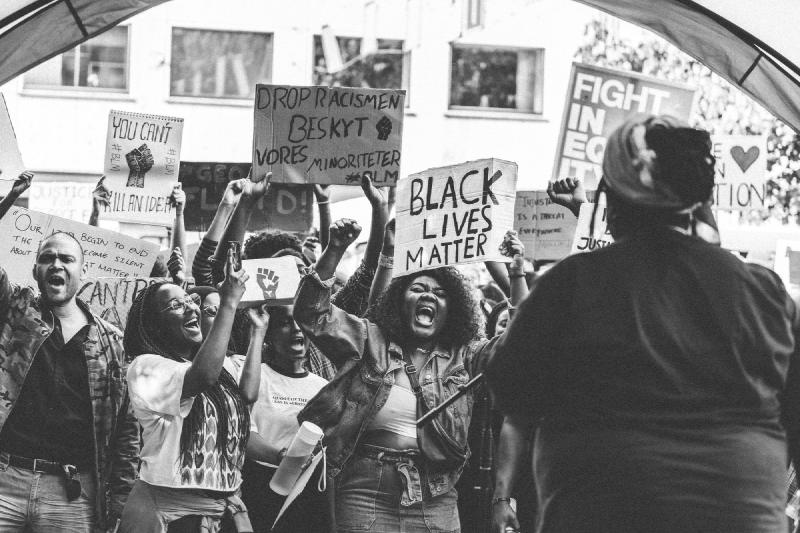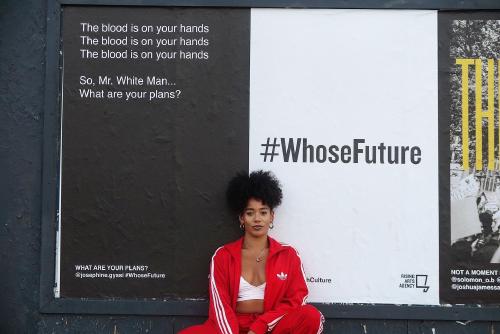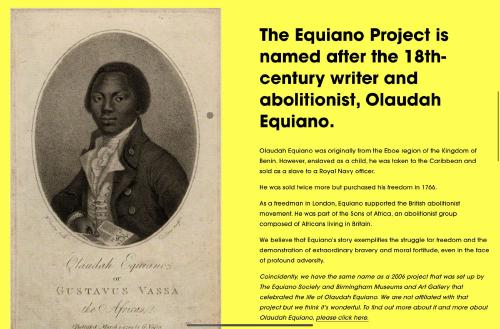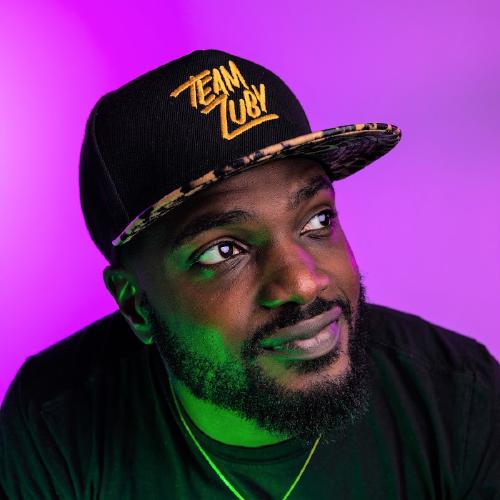
In the wake of George Floyd’s murder and the surge of protests around the world, there was a call for education: for all of us to carry out our own research, so that we could dismantle the racism that continues to cause so much hurt and suffering.
Unless you have been living under a rock, you will have seen a lot of book recommendations. These are books like White Fragility by Robin DiAngelo and, if you’re in the UK, Why I’m No Longer Talking to White People About Race by Reni Eddo-Lodge.
I read the latter book and while it made some important points, I felt uncomfortable with the wider message. With the majority of the internet in a craze about these books and many people freely confessing their racial ignorance, I was not sure what to think. Was I just in denial?
You should still read these books yourself and make up your own mind. But the point of this post is widen the discussion on race beyond the 4 or 5 books that are promoted as our already-agreed thinking on racism.
Many of these books fall under the umbrella of what’s known as the Anti-Racism movement, which has promoted some important practices such as self-education, examining of your own perceptions and understanding the history of colonialisation.
The point of naming this movement is to identify it as one particular ideology—known academically as Critical Race Theory—with its own unique diagnosis and cure for the much deeper problems of discrimination and racism.
People are very hesitant to look closer, because to question “Anti-Racism” sounds a lot like giving racism the green light. But in doing so we are not denying the reality of racism or promoting inaction; we are just questioning the response of a particular group of thinkers to these problems. And as the reach of these ideas continues grow it becomes more important to question them.
Tenets of Anti-Racism
There are some basics that I think most of us can agree on: racism is alive and well, privelege has personal and structural roots, and that despite the progress made to date, we still have more to do.
Anti-Racism has its own take on the source of racism. Solutions are fewer in number because the diagnosis is so dire, but they are there.
Here are some common characteristics you’ll find repeatedly crop up:
- A fixation on whiteness and white perception. The primary solution to racism depends on the introspection and atonement of white people, as they figure out their complicity in the current racial oppression. As Ayishat Akanbi put it recently, it sometimes seems to be more “White Perception Matters” than “Black Lives Matter”.
- Fragility. White people cannot escape their “whiteness” as it is mostly invisible to them. If anyone denies this, it is merely evidence of their inability to confront their role in the problem, something DiAngelo calls white fragility. It’s worth noting that there is no way out of this; like the dunking of witches, you end up in a difficult spot regardless of how you respond to the charges.
- White guilt. The presumption of innocence is gone, and now white people are now assumed guilty—by default—of the crime of racism. The result of this has been a global online atonement, with individuals freely confessing to their racial sins.
- Binary thinking. You’re with us or you’re against us. Of course to question any of this is merely evidence of your fragility… and you’re not a racist are you? The lines have been drawn, the correct beliefs are clear and if you’re not an anti-racist you’re likely a white supremacist.
- Focus on group difference, as opposed to individual difference: how every white person is different from every black person. White people are always oppressors; black people are always victims. It does nothing to move beyond these boundaries, and in some instances seems resigned that we may never move beyond them. It does not see beyond group identity, cannot appreciate individual difference, let alone approach something like a spiritual understanding of humans as part of a wider family.
To me, these premises promote a deepening the racial divisions between us, elevating them to something almost immutable. As Matt Taibi recently put it:
This ideology does not believe in the common human experience, generosity, love, or spirituality. It assumes that people ultimately are ruled by bottom-line racial motivations in the same way Leninists assumed people were their class affiliations.
We’re now at a point where each institution and person must not only admit guilt and pledge allegiance, but they must do it with sufficient zeal. The heads of US Poetry Foundation did not succeed here: they recently resigned after 1800 people signed a letter claiming that they had not condemned the recent events strongly enough, despite their clear statement. Four sentences was not enough.
These new ideas stand in opposition to previous racial dialogues that set out to draw a bigger circle around racial divides; that of our shared humanity. The most famous example of this was Martin Luther King Jr.’s hope that people “not be judged by the color of their skin but by the content of their character.”
Instead, this newer line of thinking doubles down on difference. White people can’t get past it, and black people can’t get out from under it. It seems to me an insult to every thriving relationship between white and black people, romantic or otherwise, and it drives an ideological wedge between people who may—when left to their own devices—simply get along with each other, without the need for strict racial guidelines on how to interact.
It is the return to a divisive focus on race that lead to posters like the below appearing around my hometown of Bristol, with support from Bristol City Council.

Do we really want to continue forward with this kind of rhetoric, where every relationship is dissected in terms of race and power? Do we want to encourage the assumption that any black inequality has been directly caused by white privelege? How will children interpret their inevitable suffering and misfortune when that is the dominant message? Would that empower them to stride forward? Or to look backward in anger?
The further danger here is to paint racial inequality as a simple issue, when it is anything but that. This is a disservice to the people actually suffering the brunt of it. Where is the wider discussion on poverty, on inequality, on culture, on policing? In the US, gun laws and rights must also feature heavily in that discussion. Injustice occurs not only due to race, but race is often caught up in it for many intertwined reasons that we need open conversations about.
All of this is not to say we should simply pivot 180 degrees and adopt some indifferent form of colour blindness, where we pretend we’re beyond racism. That is not the answer either, and is often dishonestly used to dismiss valid concerns about racism. Ultimately though, as Douglas Murray put it in the conclusion of the Madness of Crowds, assuming skin colour means nothing would be ridiculous—but—assuming it means everything will be fatal.
Two Roundtables
So what are the alternatives?
Before we jump into the individuals I want to highlight, I would like to present two roundtables to you.
Nearly everyone in my list below features in one of these two videos. These are honest discussions that do not shy away from the hard questions around inequality and race. They are also excellent models of how we can bring difficult topics to the table without resorting to binary thinking and condescension.
The first roundtable took place in the launching of the Equiano Project, and features mostly British thinkers:
The second is a black American intellectual roundtable hosted by Bret Weinstein on his Dark Horse podcast:
They are both great starting points if you don’t know which direction to start investigating.
The voices
Here are some of the most interesting individuals I’ve discovered in my own self-education. I’ve focused on black voices here, but of course there are thinkers from all backgrounds making critical contributions to the race debate.
For each thinker I’ve provided a brief intro and then at least 2 links to get you started off—from there it should be simple enough to find more. My descriptions barely scratch the surface of the works some of these individuals have produced, so you should dig deeper on any particular bio that resonates.
I do not agree with everything each of them says. But collectively they are a set of voices we need in the wider debate—it’s too important a discussion to be monopolised by one corner.
Ayishat Akanbi
The difference between those who are constantly offended and those who are never offended, is not ‘privilege and power’ but dignity and detachment.
Ayishat is a celebrity stylist, DJ and cultural commentator. She was born in Southampton and studied Media and Cultural Studies at Kingston University.
There’s a good chance you may have already seen one of Ayishat’s many videos circulating on social media recently. A good introduction is her 5 minute video on free speech, compassion and the exchange of ideas:
Ayishat is refreshingly clear on whatever she talks about and seems to get to the heart of many issues in a way that is both incisive whilst retaining compassion and nuance.
Another popular clip of hers is The Problem With Wokeness:
As one final bonus, here is a longer discussion Ayishat participated in with one of my favourite modern philosophers, Alain de Botton, founder of the School of Life.
Coleman Hughes
Coleman is an American writer and opinion columnist on issues related to race and racism. He writes regularly at Quillette, one of my favourite online magazines, whilst also contributing to many other publications like the New York Times and Wall Street Journal.
In 2019 he participated in a congressional hearing concerning the issue of reparations, along with retired NFL player Burgess Owens, author Ta-Nehisi Coates, and Rev. Eugene Taylor Sutton.
He also recently wrote A Better Anti-Racism, arguing that
We must insist that what we have in common is more important than what divides us. Our ability to remedy racial injustice depends on it.
He runs a podcast called Conversations with Coleman, which already has a very impressive list of guests. Fun fact: Coleman was part of Rihanna’s backing band at the 2016 Video Music Awards.
Inaya Folarin Iman
Inaya is a journalist, commentator and artist. She is the founder of the Equiano Project, and sits on the board of the Free Speech Union.

Here is an interview with Inaya on E2 review, which I think is a good introduction to her background and views.
Inaya also writes at Spiked, recently penning this article in response to the proposal of a Black University in the UK.
John Wood Jr.
John Wood Jr. is a former Republican nominee for congress, a musician and a noted writer and speaker on subjects including racial and political reconciliation.
John is also a national leader for Braver Angels, which:
…brings together Red and Blue Americans in a working alliance to depolarize America. We welcome people with strong convictions and principles. We believe the best way to achieve a more perfect Union is by being forthright and transparent about our political leanings. In that spirit, we say to our fellow Americans, “Come with your convictions, your willingness to listen, and your readiness to talk with others who disagree with you.”
You can find some of his writings at Areo magazine. (Another highly recommended publication)
Zuby
Zuby is British rapper, podcaster and author who popped up on many peoples radars when he claimed to have broken the British Women’s deadlift record of 238kg whilst identifying as a woman. Shortly afterwards, she took the bench press record too.

Since then he has been interviewed on many shows in the UK and US, most notably the Joe Rogan Experience. You can find that episode on Spotify. He is an entrepreneur and a critic of the Black Lives Matter organisation. His Twitter feed is thoroughly entertaining.
We’re living in a time when gender has become a spectrum, and politics is binary.
Chloé Valdery
The cruelty behind the concept of “whiteness” lies in the fact that its proponents deny that an internal life — the life of the mind and of the spirit — exists which transcends and defies such shallow abstractions; in doing so, they evacuate life of all its magic & meaning.
Chloé Valdery is the creator of The Theory of Enchantment, a framework for social emotional learning (SEL), character development, and interpersonal growth that uses pop culture as an educational tool in the classroom and beyond. She’s taught this theory around the world to help in conflict resolution.

Here is Chloé summarising the three principles behind the Theory in an interview:
John McWhorter
John is a contributing writer at The Atlantic, a professor of linguistics at Columbia University and hosts the podcast Lexicon Valley. He has written many, many books, from linguistic histories like our Our Magnificent Bastard Tongue: An Untold History of English to the kind of racial reflection featured in Losing the Race: Self-sabotage in Black America.
Here is a great conversation between John and Coleman Hughes (already listed above) on whether Anti-Racism has become a new religion:
He recently critiqued the “dehumanizing condescension” of White Fragility in an Atlantic review:
We must consider what is required to pass muster as a non-fragile white person. Refer to a “bad neighborhood,” and you’re using code for Black; call it a “Black neighborhood,” and you’re a racist; by DiAngelo’s logic, you are not to describe such neighborhoods at all, even in your own head. You must not ask Black people about their experiences and feelings, because it isn’t their responsibility to educate you. Instead, you must consult books and websites. Never mind that upon doing this you will be accused of holding actual Black people at a remove, reading the wrong sources, or drawing the wrong lessons from them. You must never cry in Black people’s presence as you explore racism, not even in sympathy, because then all the attention goes to you instead of Black people. If you object to any of the “feedback” that DiAngelo offers you about your racism, you are engaging in a type of bullying “whose function is to obscure racism, protect white dominance, and regain white equilibrium.”
That is a pretty strong charge to make against people who, according to DiAngelo, don’t even conceive of their own whiteness. But if you are white, make no mistake: You will never succeed in the “work” she demands of you. It is lifelong, and you will die a racist just as you will die a sinner.
Thanks for reading! We didn’t even get to people like Glenn Loury, Shelby Steele and, of course, Thomas Sowell.
Get my sharpest ideas, once a week.
I publish every day on fitness, tech, wisdom & learning, drawing on my experience as a founder, coach & meditator. I distill the best insights every Wednesday:
